Episode 150: Fertility 101: Preparing for Your First Fertility Clinic Appointment
The Fertility 101 Series, because there’s no shortage of daunting terms to keep your mind running, is a quick and dirty breakdown on a specific topic with insights from a fertility expert.
In today’s episode, our host speaks with five doctors about how a person can prepare to meet with a fertility doctor. They answer questions ranging from, “What should you bring to the initial evaluation?” to, “What is a transvaginal ultrasound and how do you prepare for that?”
Let this episode serve as a good starting place to ease any anxiety or questions about the family building journey.
For additional resources and answers to frequently asked questions, check out:
- Frequently Asked Questions During a Fertility Journey
- 8 Tips To Getting Started with Fertility Treatments
- Progyny Webinar: Your Family Building Journey with Progyny
Guests: Dr. Michael Drews from RMA of New Jersey, Dr. Jennifer Brown from Northeastern Reproductive Medicine, Dr. Linnea Goodman from Virginia Fertility and IVF, Dr. Thomas Molinaro, from RMA of New Jersey, Dr. Kathleen Hong from RMA of New Jersey
Host: Dan Bulger, Progyny
For more information, visit Progyny’s Podcast page and Progyny’s Education page for more resources. Be sure to follow us on Instagram, @ThisisInfertilityPodcast and use the #ThisisInfertility. Have a question, comment, or want to share your story? Email us at thisisinfertility@progyny.com.
Here are some highlights from this episode:
Age and Time with Dr. Michael Drews
02:14 – 04:59
Dan Bulger: There is hesitation many feel when just the thought of seeing a fertility doctor comes up. And I want to start addressing this with Dr. Michael Drews from RMA of New Jersey, who shares that fertility doctors know that this can all be a very difficult process for people to really dive into. But that time and age, more specifically, are crucial elements to all of this.
Dr. Michael Drews: We certainly see that this isn’t really a sort of one size fits all treatment plan, everybody’s a little bit different. The biggest decider as to what we recommend from the very first meeting is the age of the female partner, that’s the part we can’t change. And we know the egg is the most critical building block to this whole process. For men, sperm are made till the day they die. So, we will frequently suggest more conservative treatments for younger patients. Because there’s more time on the clock, we don’t really have to worry about that disappearing for our older patients, especially if they’re considering two or more children. Time is their most precious resource. So, we must step up our level of treatment to what really nature is calling for. So, when someone comes through the door and sees me at age 28, I’m going to be suggesting different treatments than I might for someone who is first starting their journey at age 38. And we talked about different ages. From all the statistics that we’ve gathered over the decades through in vitro fertilization, we know there’s certain ages where things take more precipitous decline, and that would be from 35 to 38, especially from 38 to 40. So, if someone is sort of hesitant to pursue treatment and comes through the door, say at age 38, or 39, and their doctor starts to talk about IVF right from the beginning. It’s not because that’s the only thing they do. We do all sorts of different things, and we love to see things happen more conservatively. What they’re trying to do is actually suggest the best treatment in the limited time it’s available to try to really take nature’s incredibly inefficient process of reproduction and try to squeeze the greatest efficiency out of it and nothing does that better than IVF.
At The Initial Evaluation with Dr. Jennifer Brown
05:21 – 07:37
Dan Bulger: In order to really feel prepared for an initial evaluation with a fertility doctor, well, you must first understand what the initial evaluation entails. To help us with that we spoke with Dr. Jennifer Brown from Northeastern Reproductive Medicine.
Dr. Jennifer Brown: So first, you will have a new patient appointment with your provider and at that point, the provider will review your history and find out if there are any individualized, you know, reasons something going on in your story that might be contributing to your lack of success at that point. You’ll design with your provider a plan for the next steps, which typically include an anatomical assessment of your uterus and fallopian tubes. This is done via ultrasound. So, this is a typically painless procedure where we can evaluate the uterus and fallopian tubes and ensure that the tubes are open, we can look at the uterus and make sure that it has a normal appearing cavity, a place where the embryo to later grow, and we can evaluate your ovaries for ovarian reserve, your partner will undergo a semen analysis. Additionally, we typically check some bloodwork on both you and your partner. For you, we might be checking your fertility hormone, which is called the AMH, assessing your ovarian reserve, you might have your thyroid checked, which does play a role in fertility and in miscarriage. So, we want to make sure that’s optimized. And you also might want to explore genetic carrier screening, which could tell you if you and your partner are predisposed to having a child with an autosomal recessive genetic disease that’s caused when you and your partner match up and carry this same genetic disease.
Transvaginal Ultrasounds with Dr. Linnea Goodman
08:23 – 11:49
Dan Bulger: Okay, so Dr. Brown laid it all out for you. Yes, there will be bloodwork so be prepared for that. We’ll go more into the history part in a bit, but one part I want to pause and discuss is the ultrasound. This is typically a transvaginal ultrasound. I’ve been told that it’s maybe a little uncomfortable. So, I asked the doctor if she had any tips for people to prepare for this part of the evaluation. Here’s Dr. Linnea Goodman from Virginia Fertility and IVF.
Dr. Linnea Goodman: Ultrasound is a way to image the pelvis. So, there are many ways of looking inside the body. We generally use ultrasound because it’s not invasive, and there’s no radiation. So, we must use an ultrasound that goes through the vagina. So, this is a way for us to be able to get close to your anatomy and look without any sort of radiation. So, we do an initial scan at the baseline visit to be able to get a sense of whether there are things in the uterus such as polyps, fibroids, the shape of the uterus, and then we look at the ovaries to be able to see the antral follicle count. So that’s kind of a measure of how many eggs you have. And so, we usually do an ultrasound at the first visit and then subsequently, whenever we’re doing any sort of treatment ultrasound is used to be able to monitor the ovaries. We then follow up with transvaginal ultrasounds in pregnancy. So generally, your first couple of ultrasounds in pregnancy are transvaginal, once you’re about 10 to 12 weeks, the baby is big enough to be able to look up dominantly. And so that’s what you think of when you think of a standard obstetric ultrasound through the belly. And that happens after the first trimester. So, our initial visit, and ultrasound might take, you know, 10 minutes or so as we evaluate all of the anatomy, we take detailed measurements, once we get into treatment, it can be two to five minutes as we look for specific things like looking at the lining thickness, looking at the follicles that can be much shorter.
Dan Bulger: Any pointers or tips for people who might not deal with these kinds of things well?
Dr. Linnea Goodman: If you have discomfort with the ultrasound, someone will listen to music, so put headphones in. We always use lubrication for an ultrasound, but if you find that that’s not enough, you can ask for more or use your own lubrication prior. And then I have some patients that are really having a hard time with the ultrasound and so they’ll put the probe in themselves, which is a way to kind of take control over the situation and have a hand in that.
Materials to Gather with Dr. Thomas Molinaro
12:12 – 13:55
Dan Bulger: It’s time to dive into some of the details of things you can do in advance of your first appointment in order to help the entire process go smoothly. For help with that, I spoke with Dr. Thomas Molinaro from RMA of New Jersey
Dr. Thomas Molinaro: Ahead of time, it’s important to fill out any paperwork that your clinic asks you to. Many of these are now online, but they’re general questions about your medical history, how long you’ve been attempting pregnancy, what your menstrual history might be, etc. Secondly, it’s important to bring any prior testing that you’ve had with your OB-GYN or with a prior physician. It’s a good idea to bring copies of blood tests, ultrasounds, or other imaging that you’ve had done. During your initial visit, you will be asked questions about how long you’ve been trying and what treatments you may have already undergone. And what are your goals for the future. In terms of family building, and expected family size, there are no wrong answers to these questions. It’s just important that you’re open and honest with your responses. In some cases, it’s very obvious what treatment will be recommended. While in others, the diagnostic process will be necessary in order to determine the optimal treatment.
Lifestyle Choices with Dr. Kathleen Hong
14:05 – 15:29
Dan Bulger: I want to talk to you about lifestyle things. Just for some context here, this is Dr. Kathleen Hong from RMA of New Jersey. And for this part, we were actually talking about preparing for egg freezing.
Dr. Kathleen Hong: People often ask about lifestyle changes when it comes to preparing for egg freezing or the process of IVF. And my recommendation is always to be the healthiest version of yourself. Not necessarily because that healthiest version of you will improve the overall odds that you have an egg that can become a person, but because if there’s any possible advantage in being healthy at the time of the egg retrieval, then you can achieve it. We want to make sure that your recovery from the egg retrieval process is as smooth as possible. And being healthy helps with that. But again, being the healthiest version of yourself can be a lot of different things. There’s not just one way to be healthy. So basically, just make sure that you’re doing all the things that you would do to optimize your general health and well-being. And you’re already taking that step by considering freezing eggs.
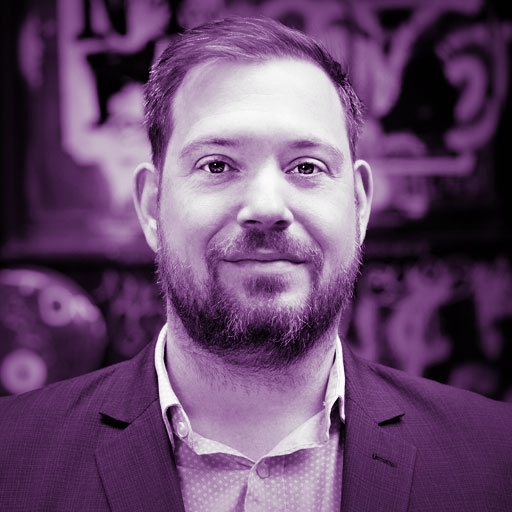
Host
Dan has been in the healthcare industry for the past ten plus years as a multimedia content producer. Better known as ‘Video Dan’ he has interviewed numerous doctors, patients and other experts in the world of fertility. He’s also the producer for this podcast, This is Infertility and the producer behind the Progyny YouTube Channel which features interviews with dozens of the nation’s leading fertility specialists. On a personal note Dan’s parents started fostering kids when he was four years old, and he considers himself a proud older brother to over 100 foster children.
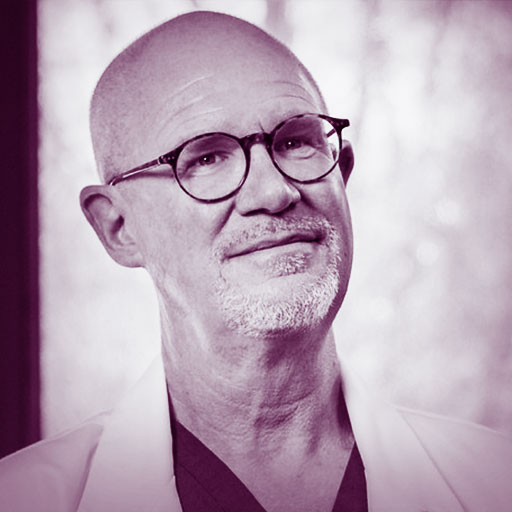
Guest
Dr. Drews is a board-certified Reproductive Endocrinologist, Obstetrician and Gynecologist, also serving as Clinical Associate Professor for the Division of Reproductive Endocrinology, Department of Obstetrics and Gynecology and Reproductive Sciences, Rutgers-Robert Wood Johnson Medical School. He received his medical degree from Cornell University Medical College, performed his Residency in Obstetrics and Gynecology at North Shore Hospital in Manhasset, NY, and completed a fellowship in Reproductive Endocrinology at Mount Sinai Medical School.
Dr. Drews is the recipient of the Purdue Frederick Award from the American College of Obstetricians and Gynecologists and a Member Prize Paper Award from the American Fertility Society. In recognition of his outstanding work with patients, he received the highest honor from RESOLVE of New Jersey, the 2002 Zenith Award, and received The American Fertility Association’s Family Building Award in 2004.
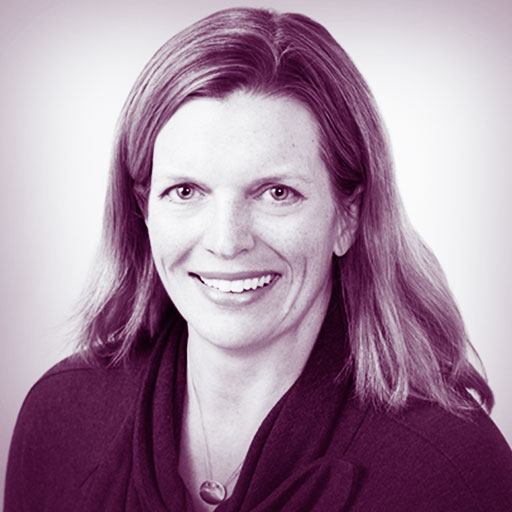
Guest
Dr. Jennifer Brown is a Board-Certified Reproductive Endocrinology and Infertility Physician. Dr. Brown specializes in fertility diagnosis and treatment, in-vitro fertilization (IVF), PCOS, recurrent pregnancy loss, pre-implantation genetic diagnosis and screening (PGT-A and PGT-M), egg donation, fertility preservation, and family building for LGBTQAI+ couples.
Dr Brown is past President of the New England Fertility Society (NEFS) and an active member of the New England fertility community. She currently sits on the executive committee of NEFS as the Vermont representative. She works to educate the community about the option of Fertility Preservation for reproductive-age women diagnosed with cancer who are preparing for chemotherapy, and also for women delaying conception for personal or social reasons.
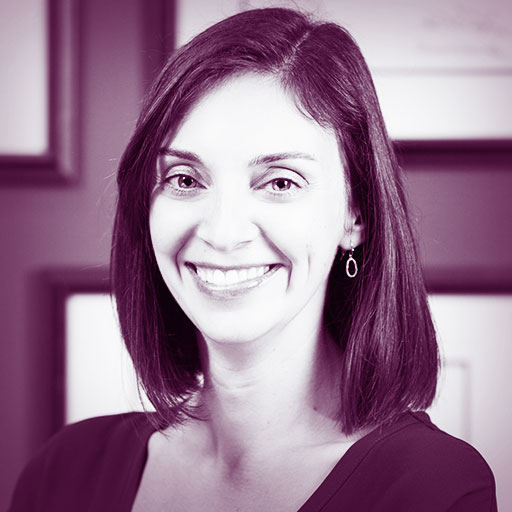
Guest
Linnea Goodman, MD, is an OB/GYN who is sub-specialty certified in reproductive endocrinology and infertility. She specializes in fertility, reproductive surgery, polycystic ovarian syndrome (PCOS) and fertility preservation. She is passionate about providing individualized patient-centered care.
Dr. Goodman spent two years as the medical director of the operating room at Reproductive Medicine Associates in New Jersey, followed by serving on the faculty at UNC as medical director from 2018 until 2020 when she joined the UVA faculty. Her research — focused on technology in medicine, reproductive surgery and optimizing reproductive outcomes — has received national recognition, earning her grant funding from multiple distinguished foundations. She is a fellow of the American College of Obstetricians and Gynecologists and sub-specialty certified in reproductive endocrinology and infertility. She is an active member of the Society of Reproductive Surgeons.
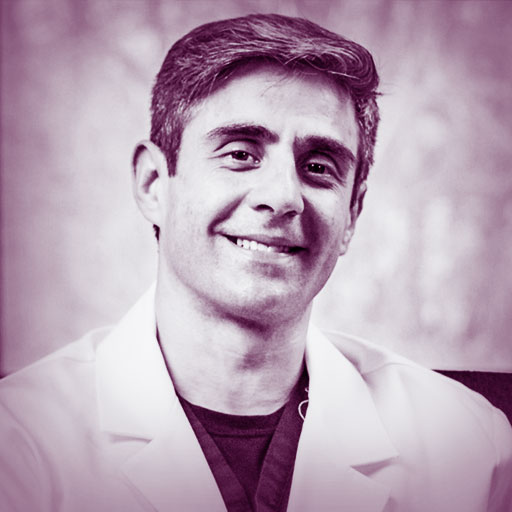
Guest
Dr. Thomas Molinaro is a board-certified Reproductive Endocrinologist, Obstetrician and Gynecologist, as well as Clinical Assistant Professor for the Department of Obstetrics, Gynecology, and Reproductive Science at Rutgers-Robert Wood Johnson Medical School. He holds a Master of Science degree in Clinical Epidemiology from the University of Pennsylvania and earned his medical degree from New Jersey Medical School – University of Medicine and Dentistry of New Jersey. He completed his Obstetrics and Gynecology residency and fellowship training in Reproductive Endocrinology at the Hospital of the University of Pennsylvania. His areas of specialty include assisted reproductive technology and treatment of ectopic pregnancy.
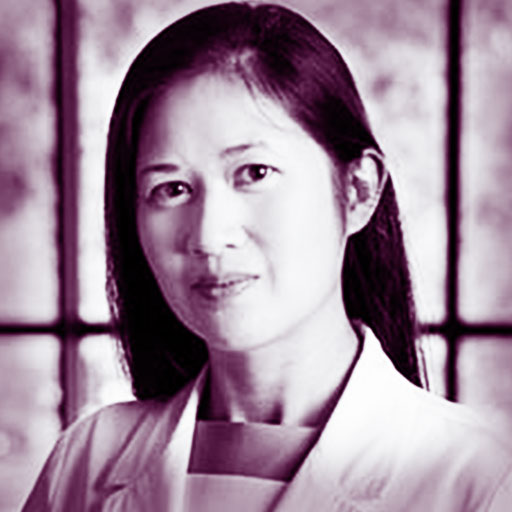
Guest
Dr. Kathleen Hong is a board-certified Reproductive Endocrinologist Infertility specialist, Obstetrician and Gynecologist, serves as the associate laboratory director of the RMANJ Embryology Laboratory, and holds a position as the Division of Reproductive Endocrinology, Department of Obstetrics, Gynecology and Reproductive Sciences, Rutgers-Robert Wood Johnson Medical School. She completed her Reproductive Endocrinology and Infertility fellowship at RMANJ in the Rutgers-Robert Wood Johnson fellowship program, is a graduate of the combined seven-year BA/MD program at Boston University, and completed her Obstetrics and Gynecology residency at the prestigious New York-Presbyterian Hospital – Weill Cornell Medical Center.
She has lead several large research studies and contributed to publications in top peer-reviewed fertility journals, including Fertility and Sterility and Journal of Assisted Reproduction and Genetics. Her research interests include embryo culture in the IVF laboratory, preimplantation genetic testing (PGT), endometrial synchrony, and heritable genetic disorders. Dr. Hong is one of the few reproductive endocrinologists in the nation who has trained in embryology.



